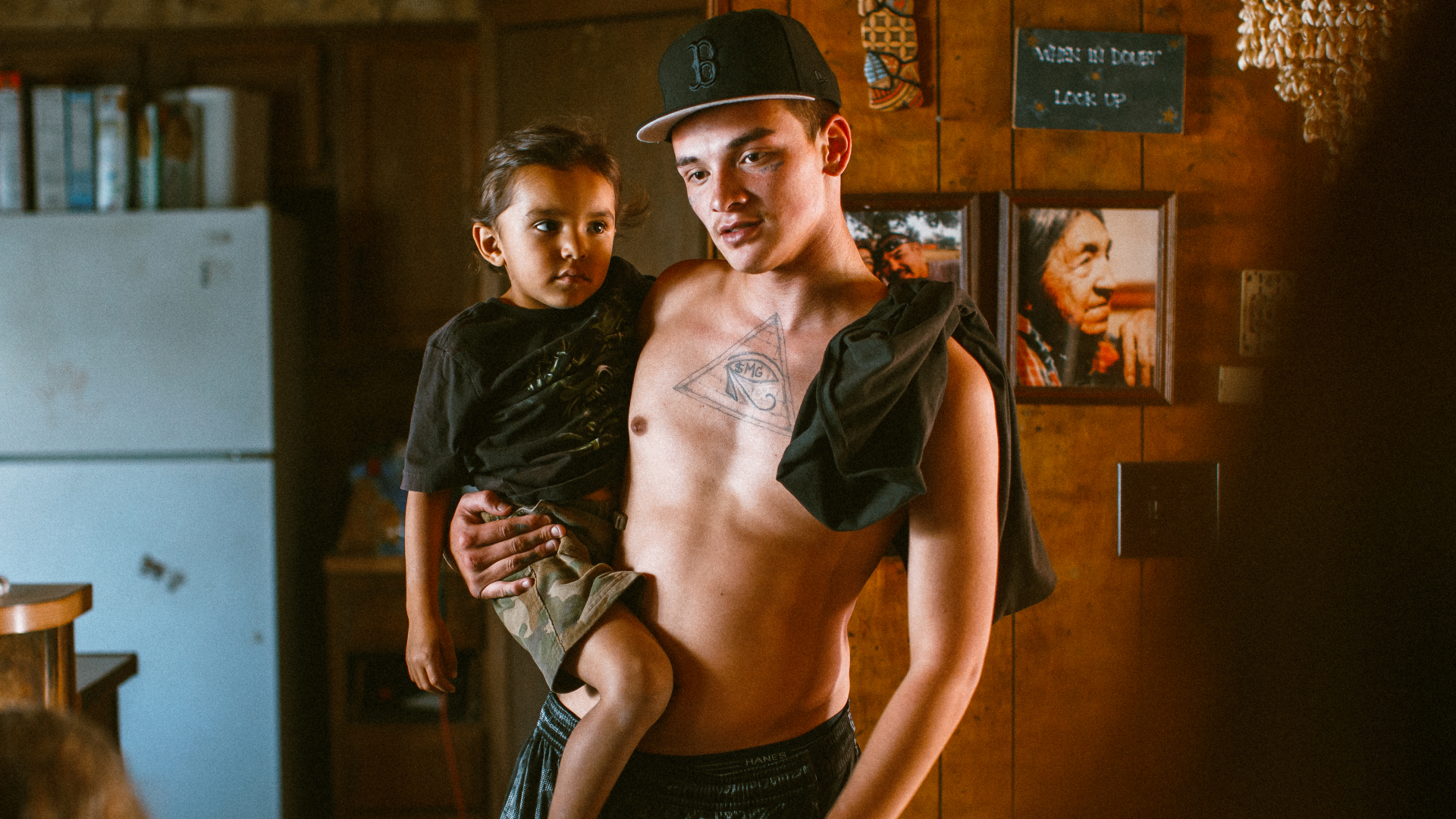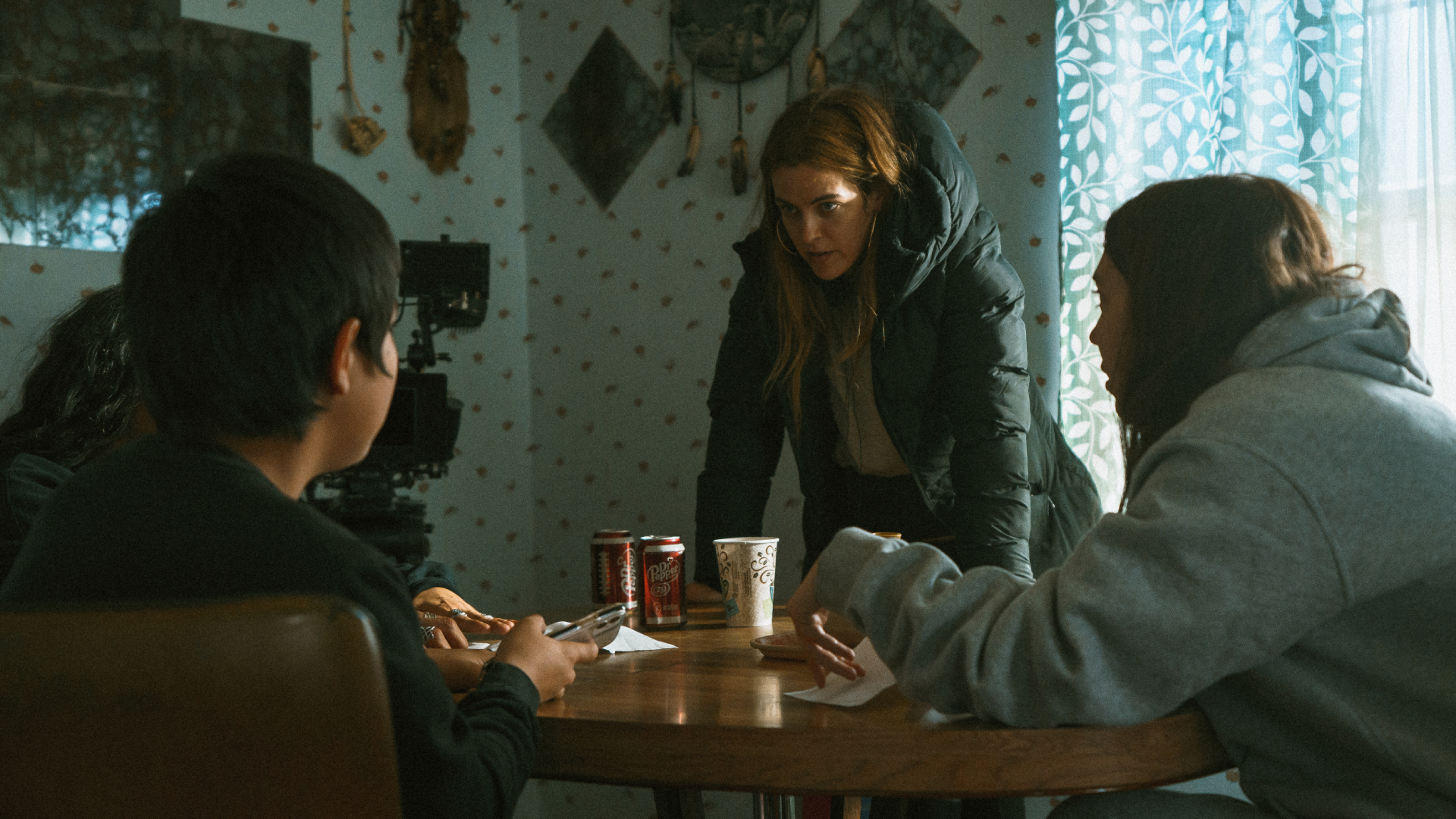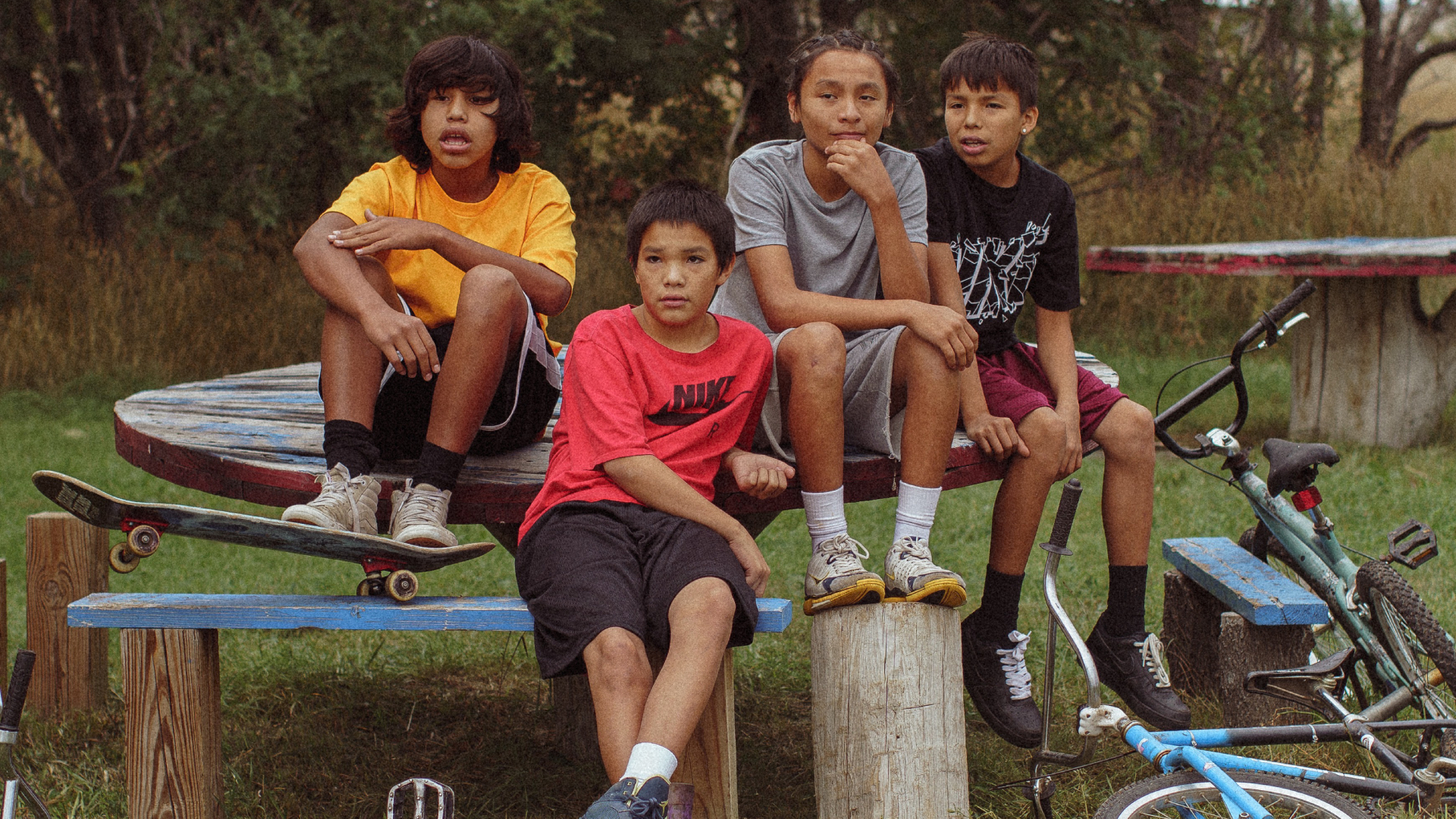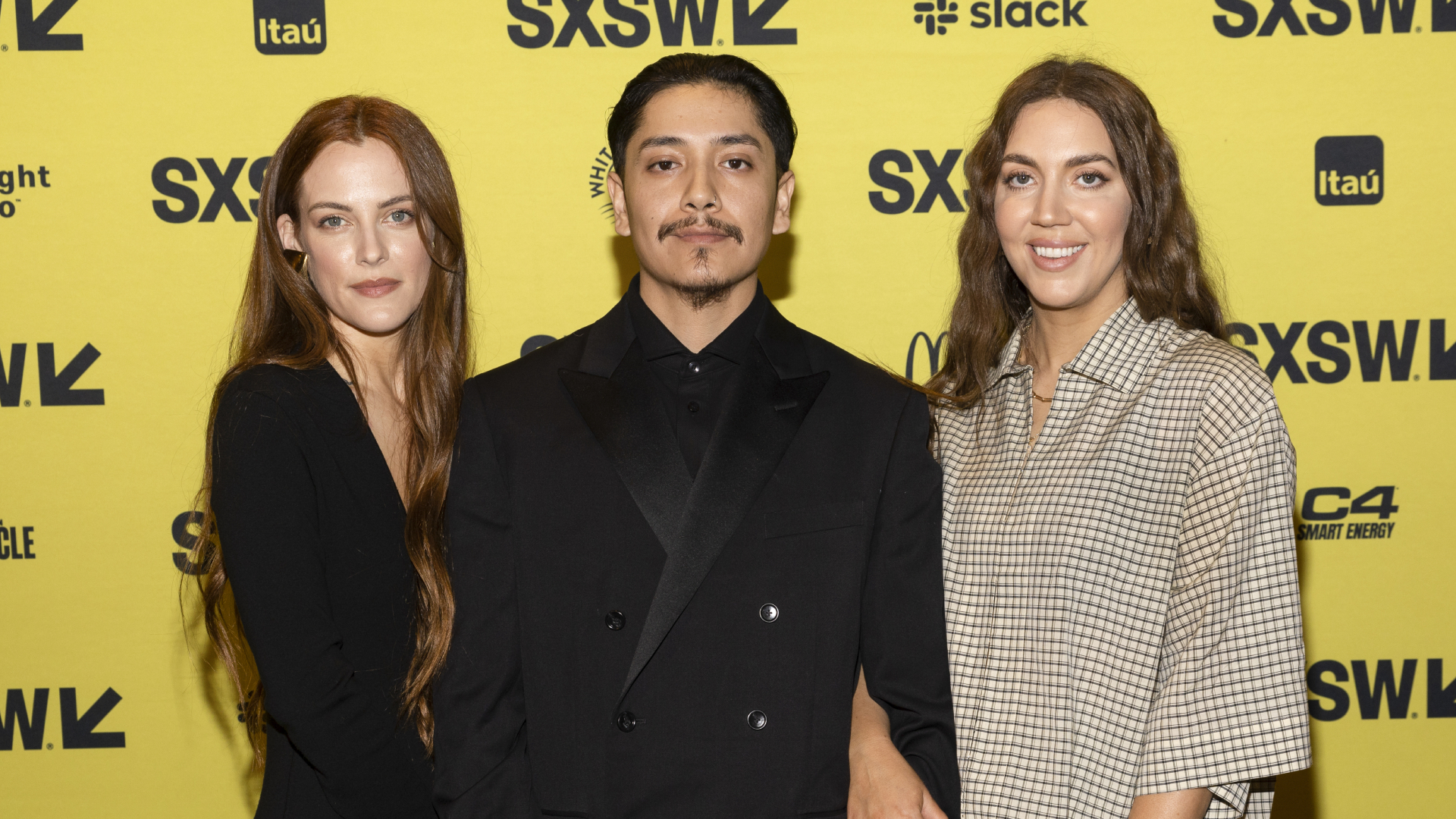Riley Keough, Gina Gammell, and Franklin Sioux Bob on the seven-year journey to make War Pony
EXCLUSIVE: Riley Keough, Gina Gammell, and Franklin Sioux Bob take us through crafting an intimate and authentic portrayal of two Oglala Lakota men in War Pony

War Pony has been a long time coming. Riley Keough and Gina Gammell’s directorial debut actually began life on the set of another film: Andrea Arnold’s American Honey. Back in 2015, Keough, who played Krystal in that movie, was filming in a motel in South Dakota when she struck up a friendship with two extras on the film called Bill Reddy and Franklin Sioux Bob.
An initial connection while waiting for cameras to start rolling evolved into a friendship and Keough introduced them to her close friend and producing partner Gina Gammell. Soon, they all began hanging out at Reddy and Sioux Bob’s home on the Pine Ridge Reservation, sharing stories and experiences, where the idea for a feature was born.
"It was such a long and non-linear process," Gammell tells GamesRadar+ over Zoom. "I remember the first day of principal photography and being like, 'Whoa, are we actually shooting?' It was many years of friendship that turned into many years of writing, collaborating, storytelling, and sharing."
War Pony is a stunning debut, sharing an intimate and beautiful snapshot of the interlocked lives of two Oglala Lakota men. Bill (Jojo Bapteise Whiting) is a 23-year-old grafter always looking for his next venture, whether that be breeding puppies or working for a turkey farmer, while 12-year-old Matho (Ladainian Crazy Thunder) finds himself forced into the harsh realities of the adult world after a series of impulsive decisions. However, the film's journey to screen wasn’t always smooth.
Fighting talk

Seven years on from that first meeting, the movie premiered at Cannes Film Festival 2022 where it won the Caméra d’Or for best debut feature. A huge part of that lengthy process, according to the filmmakers, was down to funding. "We started shooting the film with enough money to get us through a certain period of time," Gammell explains. "So I think that there was always this thing of like, 'Are we really doing this, and will we be really coming back again tomorrow?' That sentiment never ended. Like all the way up until Cannes, we were still like, 'Oh, are we really premiering the film? Is the film really finished?'"
Gammell and Keough say they had to "fight a lot" for this story to be told, especially being first-time filmmakers. Up until now, Keough has mostly been known for her acting in films like Zola and her recent ferocious turn in Daisy Jones and the Six. Meanwhile, Gammell had worked as a producer on the thriller Welcome the Stranger.
"I think that we presented something that for a lot of more traditional financiers was not obvious," Gammell continues. "Whether it was Riley and myself being first-time filmmakers, or women, or no known cast, or telling a very Indigenous story, I think that there were a lot of reasons for traditional financiers that it didn't make sense on paper."
Bringing all the latest movie news, features, and reviews to your inbox
Creating an authentic movie that captured life in Pine Ridge was a non-negotiable for everyone involved. The sovereign lands of the Oglala Lakota in South Dakota have been the subject of a lot of misrepresentation, according to writer Sioux Bob. He echoes thoughts that War Pony’s producer Willi White told The Hollywood Reporter previously about how Pine Ridge has seen many non-Native filmmakers come and go with few positive experiences.
"There was a lot of skepticism, even from myself," Sioux Bob tells GR+ when we ask about how the community initially reacted to the project. "It was just because we didn't know what was gonna happen, it was a seven-year process. And just to piggyback off from Willi, we had a lot of people come in and record different areas of the Res and then just leave, and then they would put out a publication of it. There would be no back and forth, it would just stop communication after they got what they wanted. They exploited it and that was it."
The organic approach of War Pony was different, he adds, but that didn’t mean it was without reservations. "With this one for me, the biggest skepticism that I've seen was the fact that there were two white women on the title of a Native movie," Sioux Bob continues. "You just can't get around it and that was the biggest issue I had from the jump because with a lot of filmmakers coming in and exploiting Natives, they would always tell it from their view. You would watch a movie and you could see that there was no Native involvement besides the characters that they’re filming.
"But this one, when you watch the film, you hear Natives talking from a Native voice. The story is written from a Native perspective, these are stories that I live. These are stories that Bill [Reddy, co-writer] lived. These are stories that our friend groups experienced. So when you come in from experience, you can't lie. If someone is speaking out of experience, you listen, and you feel them talk because there's a little more passion as opposed to something that's fiction."
Casting call

Keough says that to really create this for the community, they needed to approach everything from a different perspective, including the casting process. She explains this began before they even had a script in place.
"We'd just be at the gas station and see somebody and go like, 'Hey, can you come and audition for us?'" she laughs. "We have a lot of friends in Pine Ridge and there's a lot of people at the time who we didn't know, and I think there's a very profound distrust for white people, which is very warranted. That was something that in all phases of making this film that we had to be really mindful of. That was something that certainly had moments of being challenging as far as collaboration goes between communities."
She continues, "[With] what Frank was saying, you can't just go into a community and go, 'Hey, kids, can you get in my car, I want you to read for this movie.' You had to be very respectful and a lot of the actors are children so you’d go to meet their parents – it wasn't just a traditional audition process."
Part of the challenge emerged from the time it took financing to come together on the film. The original plan had been for Sioux Bob and Reddy to play themselves, but as the former put it, "We all grew up". Keough says it was important for them to stay authentic to the characters they created, as well as the people who inspired them. "We couldn't have them play 20 years old and be closer to 30 because you aren't given the same grace as you are to make mistakes when you're a 30-year-old man," the director muses.
However, when non-actor Jojo Bapteise Whiting walked in they knew they had something special. He’s the anchor of the whole movie as Bill and needed to bring the wit of the real man to the role too. The casting directors had first met him when he was about 18, but he was too young for the part at the time and didn’t follow up after an initial meeting.
"He'd spent the year following saying, 'I wonder what would have happened if I went and auditioned,'" Gammell explains. "Then they bumped into him again on the street a second time, a year or two later, where he had matured a little bit. When they brought him to us, the way he carried himself in the room and the way he led the room actually mirrored the way that real-life Bill does when he walks into the room."
"There's this really inherent cheekiness to Bill, the real Bill," Keough agrees. "And Jojo has that." It’s the humor too, Sioux Bob adds. "Jojo had that little mischievous smirk and he was quick with the wit – and those two things are Bill."
Whiting wasn’t the only talented cast member they found though, as Keough points out they were spoiled for choice. "At one point we were like, 'Maybe Bill can have three girlfriends and one ex-girlfriend?' Which honestly would be truer to life, to be honest," she laughs. "I think there was a draft where they were like, 'Bill has too many girlfriends' – and we were like, 'Well, we like too many actors for the part!'
Surprising reactions

Now War Pony is landing in UK cinemas ahead of a release date in the US later this summer, the lengthy process from writing to screen is almost over. However, it’s also a reflective time for the team to examine the responses they’ve had so far, from screenings at festivals as well as those back in Pine Ridge.
"Something that surprised me was at SXSW," Keough answers when we ask about any stand-out reactions. "I was surprised by how much the humor came through in the American screening, which was relieving."
Sioux Bob has a theory on why this is too, "I think that goes in hand with how desensitized Americans are. It might have been shock and awe to the UK, but over here, Americans see a lot of things daily and some people come from that kind of family, it's just a different color skin. A lot of the conversations I had at SXSW with people were, 'That was my uncle. That was my cousin.' They were all different races and ethnicities but at the end of the day, poor speaks poor. So that's why I think we got a little more laughs in America because you can see the humor through the trauma or you're able to find the humor in trauma because you have no choice."
Gammell agrees, but points out that the movie was never supposed to feel bleak or gritty. "We don't relate to that in the film," she adds, "so I think that it was really nice to have that experience at SXSW and also the screenings we had in Pine Ridge where audiences were catching every micro joke and every micro piece of humor. That’s Bill and Frank's words being picked up by their community in all of the nuances."
From the story-sharing among friends that began this whole process to seeing it enjoyed by the people they made it for, this marks a full circle moment for the filmmakers. It seems their gamble – and fight – for War Pony paid off.
War Pony opens in UK and Irish cinemas from June 9 ahead of a US release on July 28. For more upcoming movies, here's our list 2023 movie release dates.

I’m the Deputy Entertainment Editor here at GamesRadar+, covering TV and film for the Total Film and SFX sections online. I previously worked as a Senior Showbiz Reporter and SEO TV reporter at Express Online for three years. I've also written for The Resident magazines and Amateur Photographer, before specializing in entertainment.


